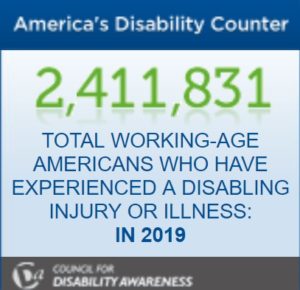Why you need it, and if you already have it, why you need to know what you’ve got!

Part 3
Potential for serious gaps: group Disability policies through work
You’ve heard about disability income insurance as a work benefit, and you think you have something through your employer. Some sort of Group insurance thingy that they said will help you in case you’re sick or injured.
Most people choose to go with their workplace disability benefits as opposed to a personalized individual policy for a few reasons, such as
1.) Its cheap (beware, you get what you pay for: see points below)
2.) It’s guaranteed; there is no medical exam or medical underwriting involved
3.) It’s easy to sign up .
But what protection do you really have through group coverage?
Not knowing what you’ve got and hoping if something bad happens you’ll be protected is the financial planning equivalent of hiding under the covers and wishing everything works out okay.
So let’s review key points so that you can judge if your workplace disability benefit is truly the coverage that you can sleep well at night with.
Here are 5 key points to understand:
Who’s paying?
If your employer is paying for your coverage, generally any benefit you receive later will be taxable income, meaning your $5,000 a month benefit won’t necessarily cover $5,000 of your monthly expenses after taxes are taken out. If, on the other hand, the premium is deducted from your paycheck (i.e.-you’re paying for it), it may be tax free. Consult a qualified tax professional to determine what applies to your situation.
How long will I receive payment?
How long your payments will last is also something to understand. While some may pay longer, many group policies through an employer only pay benefits for two years maximum. Problem is that you may be disabled for a lot longer than 2 years. Be sure to check. Many individual policies will continue to pay benefits for your true occupational class until retirement, which can be a critical feature.
How is your benefit calculated?
Understanding how your benefit is calculated can reveal a great hole in your financial plan, especially for higher income earners and those that rely on bonuses for a large part of their compensation. Many group policies will only cover 60% of your monthly income, but they could also have caps on the income used to calculate the payment. For instance, if they cap the maximum benefit payment at $6,000 monthly, then a worker who makes $108,000 per year would receive $5,400 per month disability benefit. No problem for them. But an employee that earns $180,000 per year would only make $6,000 in benefit per month! That’s a 60% pay cut. On the other hand an individual policy that you bought would be tailored to your needs.
Do you get paid on bonus?
Consider non salary income. Many group plans do not include bonuses when figuring your benefit. So, while the employee that makes $108,000 salary will receive a $5400 a month claim, the employee who earns $75,000 salary and $33,000 bonus (That adds up to the same $108,000) will only receive a benefit of $3,750 per month. A shortfall indeed!
How much do you love your current job?
You should also consider portability of coverage. Many policies are not portable, meaning if you leave your job, you can’t take it with you. What if your new employer doesn’t offer disability coverage? Even if you stay at your job, your employer could cease offering coverage in future, which would leave you uncovered. The benefit of having an individual policy is its guaranteed renewability; as long as premiums are paid, you keep your coverage.
If after examining your group work coverage and feel there may be some shortcomings, you can consider owning your own personalized policy, or at least supplement your group with individual coverage to secure your future by filling in potential gaps.
In financial Planning, we need to think short and long term. Make sure you know what you’ve got and the potential hazards before you go for the cheap and easy solution. Group disability coverage can be part of your plan, and it is better than no coverage, but it may not be best for you and your family.
For more information contact us HERE for a review of what is available to you.
Check out our other parts in this disability series. In part 1, we covered the need for working people to consider disability insurance Protecting Your Most Important Asset“, and in Part 2, we wrote about the ins and outs of policies in “The Inner Workings of a Policy: What to Look For”